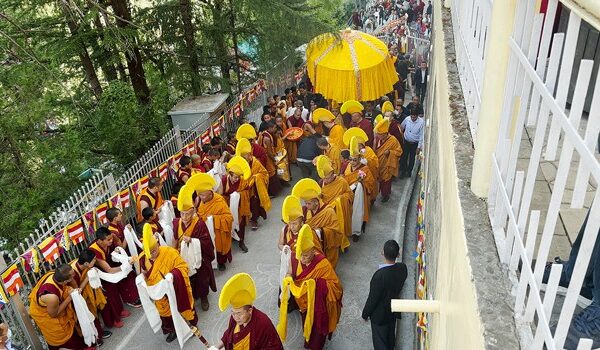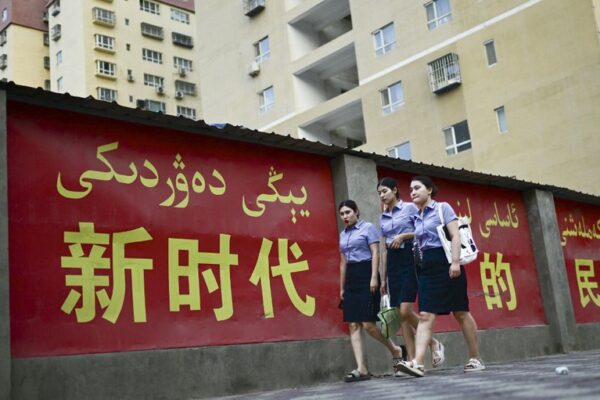Rebels push over 600 junta personnel out of Myanmar-Thailand border town
Myanmar junta forces, pushed out by rebel groups at the border township of Myawaddy, have requested to be evacuated with their family members through a Thai border town, Thailand’s foreign ministry said on Monday. “After receiving the said request, and upon considering the urgency of the situation and the possibility of an evacuation of Myanmar personnel and their families to safe areas, a decision was made at the government level to approve the request from Myanmar on humanitarian grounds,” said the Thai Ministry of Foreign Affairs in a statement. Around 617 personnel have requested evacuation, including 410 soldiers and 207 family members, according to Thai media. Allied rebel armed groups in Kayin state, which border’s Thailand Tak province, have suspended some of the junta’s local government offices in the major trade hub township of Myawaddy since Saturday, said a local businessman. “At Friendship Bridge No. 1 also, immigration is issuing papers for people to cross [over the border], working as usual,” he said, declining to be named for security reasons. “The usual police, Office of the Chief of Military Security Affairs and Bureau of Special Investigation were not seen at Friendship Bridge No. 1.” Friendship Bridge No. 1 connects the Thai city of Mae Sot with Myanmar’s Myawaddy and has been run by Myanmar’s junta since it reopened in 2023 after a three-year hiatus. The Karen Nation Union, working with guerilla armies, or the People’s Defense Forces, and the Border Guard Forces on Saturday’s maneuver, has not issued any updates about their hold on Myawaddy since the Thai ministry’s announcement. The group announced on Saturday it captured Thin Gan Nyi Naung village in Myawaddy district, still 12 kilometers (seven miles) from the border. In 2023, it seized a mountain overlooking Myawaddy, and took control of the city’s Asian Highway in December. While these liminal successes at the border could mark significant economic and security changes, there are other strategic trade routes and military positions the junta still has a tight grasp on, said Dulyapak Preecharush, an associate professor of Southeast Asian Studies at Thailand’s Thammasat University. “Now, the opposition groups have more power than the [State Authority Council] in this area and will become the powerful stakeholder there,” he said. “However, despite the Tatmadaw’s [the military of Myanmar’s] failure in defending the city [Myawaddy], other military camps in Kayin state and its headquarter of Southeastern Regional Command in Mawlamyine have not been captured.” Non-political aid According to the Thai foreign ministry, one flight arrived from Myanmar at Mae Sot’s airport on Sunday. The ministry did not elaborate if all officials boarded the flight or were evacuated, but said the junta has since requested that remaining flights for Monday and Tuesday be canceled. A meeting will be held at the Government House on Tuesday to “assess the situation” and “determine a course of action for Thailand,” the statement continued. Thailand’s Ratchamanu task force, based in the border province of Tak, has stressed the country’s firm neutral stance among all warring factions in Myanmar. “In line with humanitarian principle, Thailand would not take side with Myanmar troops nor ethnic forces but we give assistance where applicable,” Task Force Commander Col. Nattakorn Reuntib told Radio Free Asia. Soldiers, regardless of their political association, would be disarmed, given basic assistance and repatriated, he added. Thailand’s foreign ministry has not responded to RFA’s inquiries as of this writing. This development – the ethnic armies having more control over the border – could prompt Thailand’s officials to re-examine their operations in Mae Sot, said political analyst Panitan Wattanayagorn. “Who controls the bridge must control immigration,” he said, adding that new groups may be more flexible on the border than the junta was. “The Thai officers must renegotiate with the new groups to make sure there is no real surge or increase in terms of crossing borders illegally.” Edited by Elaine Chan and Taejun Kang.






